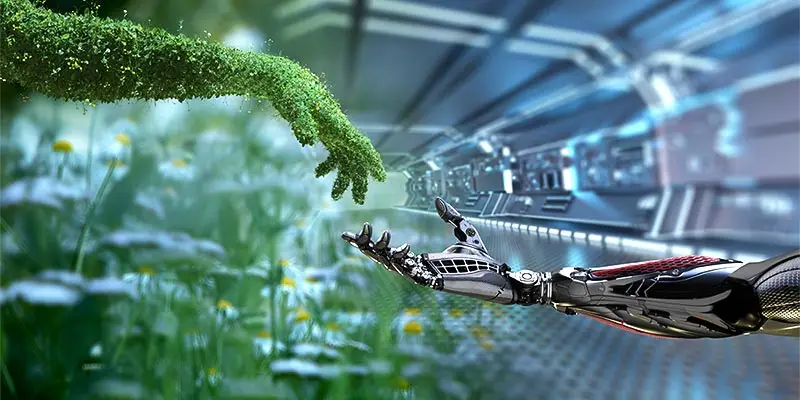
Today is another day on which the activities carried out by humans are leaving a negative impact on the environment, this being approximately a sad and repeating scenario, day by day, since the beginning of the industrial revolution and until present. After almost three hundred years of continuous pollution, life on Earth has changed. The global warming due to the high carbon emissions in the atmosphere has catastrophic consequences on vegetation, animals and humans also: the Antarctic ice sheet is melting day by day causing the water levels to rise over the terrestrial surface, temperatures and atmospheric precipitations are no longer subject to calendar seasons, animal species have become extinct or are on the verge of extinction, and vast fertile lands are in danger of desertification.
Facing these challenges, humans were taken unprepared. At high temperatures neither the aircrafts can take off (Coffel et al. 2017; Zhou et al. 2018). In July 2017, 43 flights to Pheonix, Arizona were cancelled due to a heat wave of over 120° F (approx. 48.9° C). The hot air has a lower density, and a higher elevation is needed for an aircraft to take off. With a maximum operating temperature of 118° F (approx. 47.8° C), Bombardier CRJ aircraft made by Mitsubishi Heavy Industries that were operating regional flights could have not land or take off. However, in order for airplanes to operate at high temperatures, either a higher speed is needed – which means a longer runaway (although it is known that many airports in the world are built on the coast, so they do not have very long runways and no possibility of expansion, such as La Guardia airport in New York and Ronald Reagan in Washington), or a reduction in weight – which translates into a reduction in the number of passengers or the cargo carried, so to be able to operate in higher temperature ranges, but all these solutions involve very high implementation costs.
At this time, governments, environmental organizations and business people around the world are taking action and measures to reduce the negative impact on the environment. On February 27, Jeff Bezos, founder and CEO of Amazon, announced the establishment of the $10 billion Bezos Earth Fund for global warming and environmental protection. GritSablare is the Romanian leader in the blasting media and equipment field, which activates also in the industrial sector of foundries and water-jet cutting materials. Our company is aware that it operates in industrial sectors with potential effects on the environment, therefore, we also joined these initiatives by strengthening the flank of those who care for this planet, and who want to take an action and make a change, by returning a part of the little or the much they own, to the common interest.
We are the only company in Romania that provides for free the blast waste recovery and recycling service, our company paying the tax for each tonne of blast waste recovered, in accordance with the environmental permit number 37 DD of 11.04.2017, for code 120101, with documents justifying in a transparent manner, the traceability of the used material.
Since 2015, based on studies conducted on various blasting materials, our company has decided to market exclusively environmentally friendly and non-toxic industrial materials, both for blasting, and also for foundries and water jet cutting machines. Our blasting materials are safe for outdoor use for cleaning bridges, maritime ships, tanks, without harming the environment, and without endangering the health of properly equipped blasting operators with personal protective equipment, due to a content less than 0.1% of free silica particles (SiO2 lc) in the breathing air, such as copper slag and red garnet.
Our company is present at international trade fairs to identify the latest and the most innovative blasting solutions, with a minimum impact on the environment. Our commercial offer includes ecological blasting media that can be reused multiple times, like the cut-wire steel shots (with more than 3000 operating cycles), angular steel grit (with more than 1100 operating cycles – Erwin Test Machine), stainless steel grit and shots (with more than 800 operating cycles). Further, we also included in our offer of blasting pots and equipment, modern and innovative vacuum blasting installations that eliminates entirely the dust from the atmosphere.
Humanity has evolved, and research is constantly providing us with new solutions for industrial activities, so that we can leave a beautiful and clean planet Earth for future generations. Let us think for a moment and realize what we really want for us, the inhabitants of this planet: a healthy life in a clean environment, a life that is possible only this way, with a sustained effort of each of us. Let us look at what we leave behind us, and understand that sustainability is achieved over time, promoting a continuous ethical behaviour.
Therefore, GritSablare promotes conducting the blasting and cleaning operations only with ecological and non-toxic media, and also encourages a responsible management of blasting waste. By using ecological materials, we reduce at a minimum the impact on the environment and the risk of occupational diseases among blasting operators, like silicosis – a deadly condition caused by blasting with quartz (yellow) sand, a very toxic blasting media, with a content of more than 90% free silica in the breathing air. Join us in your industrial activities, by choosing environmental-friendly and non-toxic materials, to pursue together a common goal: a beautiful and clean Planet Earth!
Bibliography:
- Coffel, E.D., Thompson, T.R. & Horton, R.M. (2017) The impacts of rising temperatures on aircraft takeoff performance. Climatic Change 144, 381–388.
- Zhou, Y., Zhang, N., Li, C. et al. (2018) Decreased takeoff performance of aircraft due to climate change. Climatic Change 151, 463–472.
